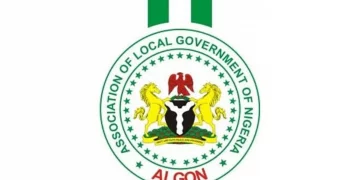The College of Professors in Nigeria (CoPIN), an intellectual think tank, unveiled an eight-year manual on Monday at the Institute for Peace and Conflict Resolution, Abuja, that could help chart and transform Nigeria’s development paradigm for the country’s betterment.
The Abuja Papers: Manual for Short and Medium Term Development of Nigeria (2024-2032) addressed developmental issues. It was launched by a group of professors who converged to shape decisions and policies to change Nigeria’s current unacceptable economic backwardness.
The president of CoPIN, Prof. Otoabasi Akpan, who led his colleagues in bringing the document into the public domain, said that the group had observed critical gaps that have denied the country the opportunity to become a strong country.
Akpan, who is also the Deputy Vice Chancellor of administration at Akwa-Ibom State University, said, “These can be attributed to a lack of agreement on standard fundamentals, principles, statesmanship, executive capacity, knowledge of the evolution of the Nigerian state, and ideas on the future of Nigeria.
He said that “these are the questions of the absence of elite consensus and ability to spice up democratic traditions with traditional Nigerian models which had been influential in the pre-colonial era.
“Though not exhaustive, the challenges listed have combined to institutionalise Nigeria as a weak state.
“We must help our country stop in its tracks the uncanny jinx about Nigeria writing its history backwards due to the absence of resourceful leadership.”
The 333-page manual was the product of a commitment to reverse the development jinx in Nigeria by periodically publishing ‘The Abuja Papers’, which would address the issues that concern the Nigerian federation.
Akpan noted that the first edition focused on Nigeria’s immediate needs to retool and make way for political stability, social harmony, the enthronement of justice, and the development of enduring economic development.
“In this first volume, 40 Notes are presented on the policies and decisions to be taken by Nigerian governments within the short and medium-term periods.
“We have developed in Note 1 the approaches to involve the spirits of statesmanship and citizenship in Nigerians such that they can rise to change the present narrative, which implies payment of appropriate taxes.
“Only the formal sectors pay appropriate taxes. The least the country should have in taxes is N50 trillion, but we have less.
“Also, we want to speak to our leaders about some evidence-based policies; that is why we have expected outcomes in our submission,” he said.
He added that other recommendations included the government turning the 9,555 political wards into National Development Districts (NDDs), stressing that this would ensure that every odd year, N10 million would be given as low-interest loans to citizens for capital formation and personal development.
Earlier in his address, the Director-General of the Institute of Peace and Conflict Resolution, Dr Joseph Ochogwu, commended the group, stressing that Nigeria benefits immensely from the document’s knowledge.




